In the countdown to International Women’s Day 2022, we celebrate the late Jeanne Lamon—trailblazer, feminist, pioneer, and role model for a generation of women in music.
Paving the Way for Women
By Luisa Trisi
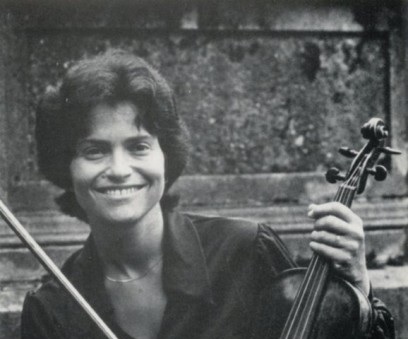
In 2022, it is easy to take for granted that women all over the world are stepping up to podiums to conduct orchestras. But we might forget that back in 1981, when Jeanne Lamon became music director of Tafelmusik, she was among the very first women to lead an orchestra. Supporting her vision along the way were managing directors Ottie Lockey and Tricia Baldwin, and Tafelmusik soon established a reputation for strong female leadership that challenged sexist attitudes—a legacy that continues today under Music Director Elisa Citterio and Executive Director Carol Kehoe. As the Globe and Mail stated in Jeanne’s obituary last June, “Here was an ensemble run by women with gender parity as a given, determined to achieve a standard of excellence to rival the classical music boys’ club. At the time, a female music director was such a rarity that Ms. Lamon felt compelled to change the spelling of her first name to Jeanne, to avoid the assumption that ‘Jean Lamon’ was a Frenchman.”
Jeanne herself acknowledged that the road to becoming one of the first female orchestra leaders was not easy. At her 2014 convocation address to receive an honorary doctorate from the University of Toronto, she admitted, “there were some pretty impressive roadblocks on my path. For one, I never dared to dream so big. I lacked confidence in myself, largely because, as a woman, I had few role models. When I began my professional journey, there were no women conductors, period. For that matter, there were almost no women in public office, on TV or the radio, or on the concert stage.”
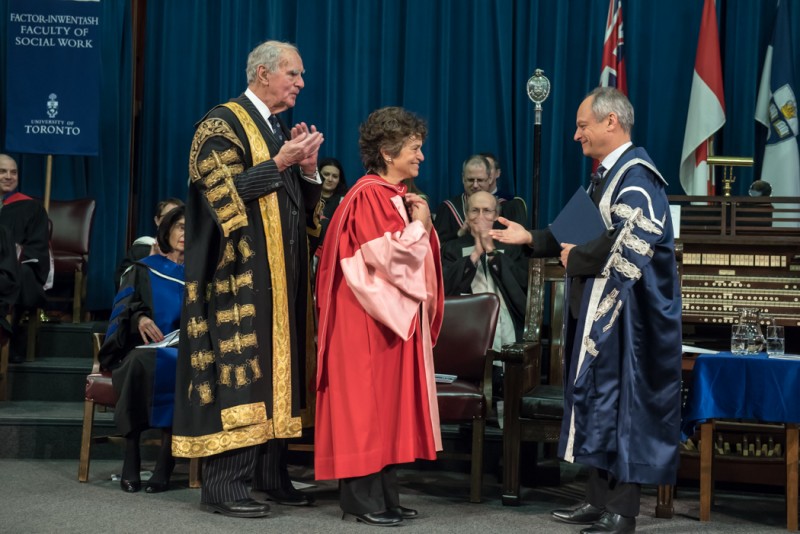
When the news of Jeanne’s death broke in June 2021, social media was flooded with personal tributes from every corner of the globe. Many came from the women Jeanne had inspired, including Susie Napper, co-director and founder of Festival Montreal Baroque, who wrote, “Jeanne is gone but her influence on so many musicians and on the Canadian early music scene will be ongoing. Personally enigmatic, gentle yet forceful, sometimes steely, sometimes sweet, Jeanne was a model for women to step beyond the threshold of their traditional roles in orchestras. Inspiring women musicians to become leaders in the field will be her most important legacy, for which we’re very grateful.”
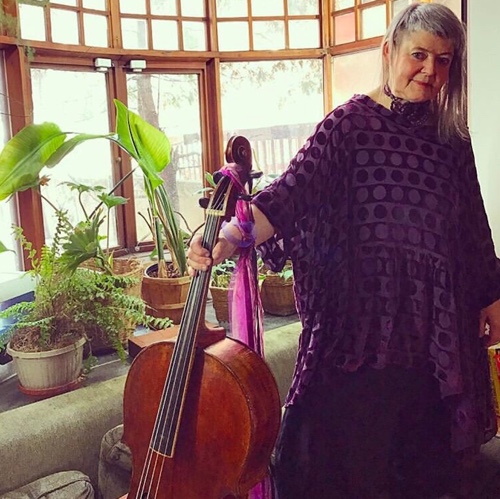
A frequent guest cellist and viola da gambist with Tafelmusik, Susie first met Jeanne and her partner Christina Mahler in the Netherlands in the early 1980s. “Jeanne was a rare beast in those days. There were a few women who could have been her model: there were lead violinists in Europe but not one of them, as far as I know, was without a male in front of the orchestra. As Canadians, we should all be proud of Jeanne’s accomplishment and honoured that Canada is supportive in the area of women’s equality. However, there’s still a ways to go!”
Jeanne’s influence as a female leader extended beyond the sphere of Western European classical music. Thanks to the creative cross-cultural programs designed by the orchestra’s former double bassist Alison Mackay, Tafelmusik players had the opportunity to collaborate with musicians from diverse cultural traditions. One of these was pipa maven Wen Zhao, guest soloist in The Four Seasons: A Cycle of the Sun. Combining Antonio Vivaldi’s masterpiece with a score by Mychael Danna, the score explored Chinese, Indian, and Indigenous musical perspectives through an all-female lens.
Wen knew Jeanne by reputation alone when she arrived for her first Four Seasons rehearsal. “I had been practising the music on my own for many months and I was a little nervous because it was one of my first cross-cultural projects in Toronto and my first experience with a Western chamber orchestra. As it turned out, Jeanne felt it was just as important to learn about my music and instrument. She was interested in my pipa and asked many questions about the instrument—the history, the style, and even the maker.”
On stage for her first live performances with Tafelmusik, Wen was encouraged by Jeanne, who welcomed her input and talent, especially during their duet in the Winter movement. “I play Chinese pipa and Western music is so totally different. How could I express baroque style on my instrument? I used a long tremolo and watched Jeanne as much as possible so I could copy her bowing movements. Every time I looked at her, she smiled at me—a big encouraging smile—and gave me the cue. She gave me the encouragement I needed and was a really great mentor.”
Tafelmusik toured The Four Seasons program extensively across North America and Asia, and over dozens of long-haul flights and bus trips, Jeanne and Wen developed a close friendship. Between concerts in China, Wen delighted in playing chaperone and sharing aspects of her native country with Jeanne, from her favourite restaurants to the silk markets in Beijing.
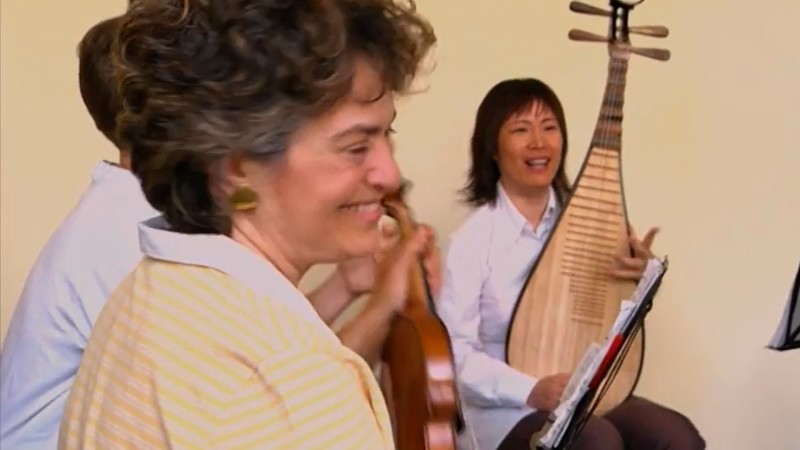
A relative newcomer to Toronto in the 1990s, Wen was surprised that female leadership remained a relative rarity in the Western classical music world when Jeanne assumed her post at Tafelmusik. “She was definitely a great role model for younger generations of women. Such a strong person. The thing is, we still need to encourage and promote women in these groups.”
In the countless appreciations, obituaries, and news articles written about Jeanne, much has already been said about her artistry and leadership at the helm of Tafelmusik. However, Jeanne’s greatest legacy for young women—her passionate dedication to artist training—was imparted behind the scenes.
The most moving and heartfelt tributes in the days immediately following Jeanne’s death were from students she mentored through Tafelmusik Baroque Summer Institute (TBSI), which has trained more than 1500 musicians hailing from 64 countries. Many young women who attended TBSI have acknowledged Jeanne’s contribution in breaking down stereotypes around gender roles in classical music. In the words of emerging conductor and TBSI alumna Eszter Horvath,“In a world that’s still lacking in women role models, thank you so much for being one of the first to do this professionally and so, so beautifully.”
Another alumna, violinist Chloe Kim, first attended TBSI at the age of 18. Jeanne’s reputation as a toweringly influential pioneer of the Canadian early music scene could have an intimidating effect on young students who were just beginning to explore period instruments. “Jeanne had strong ties to the very beginning of the period music revolution, which she experienced with her own eyes and ears, being present at concerts by legends like Gustav Leonhardt. I just remember seeing her as a sort of giant on stage and then being very surprised the next morning. She showed up to our masterclass in fuzzy pink socks and Birkenstocks. She was a totally different person offstage.”
What began as a teacher-student relationship became more of a collaboration between equals towards the end of Jeanne’s life. By 2019, both Jeanne and Christina had officially retired from Tafelmusik. They sold their house in Toronto and moved to a new home in Victoria, where they enjoyed playing chamber music with their West Coast friends. One of their closest collaborators was Chloe, who had launched a series called Music for the Pause during the first summer of the global pandemic. Their September 2020 concert featured Jeanne’s transcription for string trio of the Ciaccona in D Minor by Bach. “Though at the time we didn’t know it, I was very fortunate to have played what would be Jeanne’s final concerts with her. Those sunny days of chatting, laughing, sharing food and stories and insights together are memories I will always carry forward with me.”
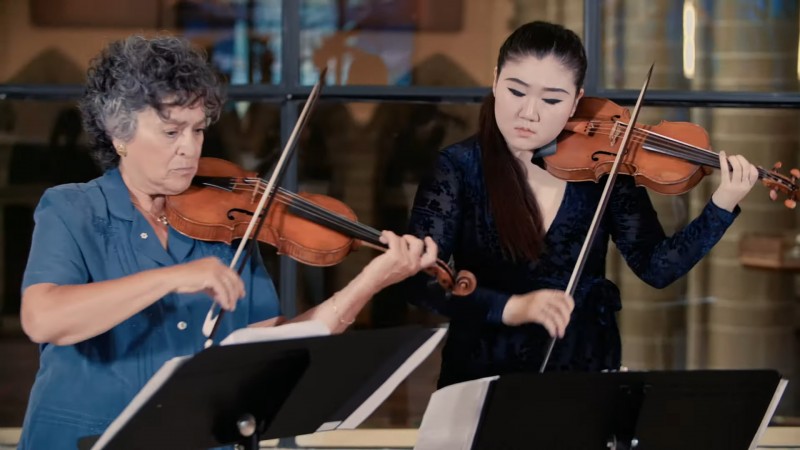
For Chloe, the continuity of Jeanne’s influence paves the way for future generations of female musicians. “She was a trailblazer, such an important figure. We forget how hard it must have been for her at the beginning, as a woman. She really had to make her own way. I still think about that today. Jeanne has truly changed the lives of so many people, mine included, and she leaves behind a brilliant legacy. Her influence will continue to shine for years to come.”
Luisa Trisi is the founder of Big Picture Communications, a Toronto-based company specializing in strategic communications. As Media Relations Manager for Tafelmusik, she had the honour of working with Jeanne Lamon.
